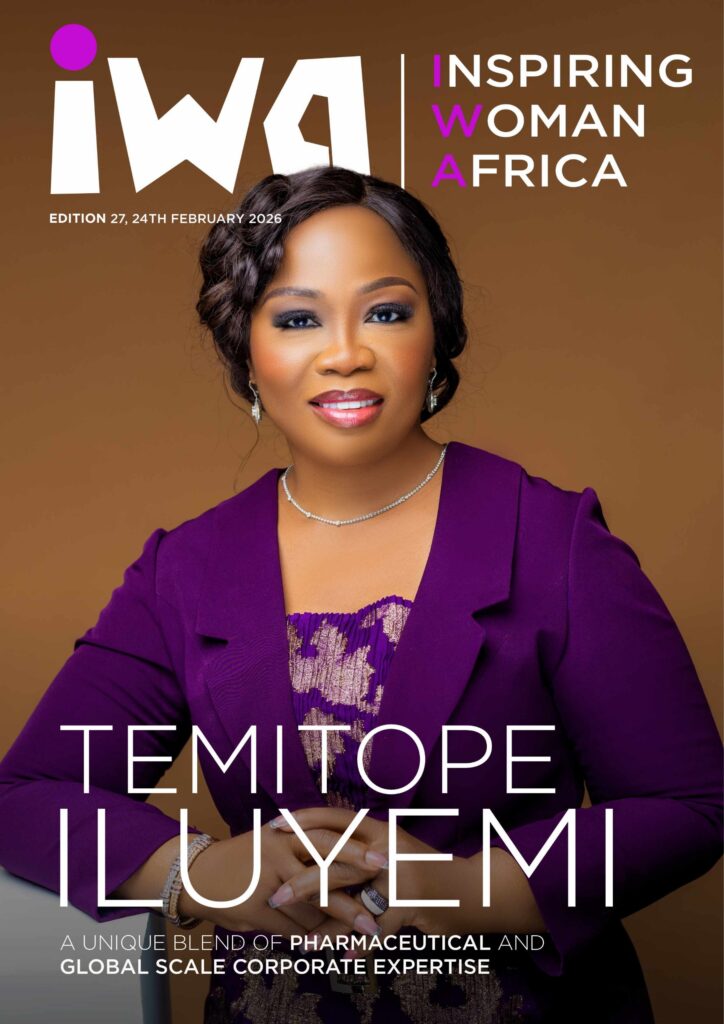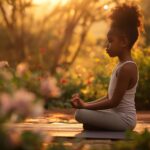
As Nigeria marks its 65th Independence Day on October 1, 2025, the nation reflects not only on its political and economic journey but also on the wellbeing of its people. Independence is not just about sovereignty, it is about the freedom to live fully, healthily, and with dignity. In a world increasingly shaped by stress, disease, and disconnection, holistic living offers a pathway for Nigerians to embrace health and independence in body, mind, and spirit.
Holistic living goes beyond diet and exercise. It is a lifestyle that acknowledges the interconnectedness of all aspects of life: physical health, mental wellbeing, relationships, spirituality, community, and environment. At its core, holistic living means asking: Am I thriving, or merely surviving?
For Nigerians, this question is especially urgent. The World Health Organisation (WHO) estimates that lifestyle-related diseases such as hypertension, diabetes, and depression are on the rise across Africa. According to Nigeria’s Federal Ministry of Health, non-communicable diseases now account for more than 25% of hospital admissions, while mental health conditions affect nearly 20% of the population. Clearly, economic growth alone is not enough, health and wellbeing must be national priorities.
Interestingly, holistic living is not new to Nigeria. Our ancestors understood the power of balance. Yoruba herbal medicine, Hausa-Fulani dietary practices, and Igbo communal rituals reflect centuries of knowledge on how to live in harmony with nature and community.
Indigenous practices like using moringa leaves, hibiscus tea (zobo), or mindfulness through prayer and storytelling are timeless tools for wellness.
As modern Nigerians rush through urban traffic, scroll endlessly on smartphones, and adopt fast-food diets, much of this wisdom has been sidelined. Reclaiming holistic living does not mean rejecting modernity; it means integrating technology and science with the cultural strengths we already have.
Research consistently shows that stress is one of the leading triggers of chronic illness. For Nigeria, where economic pressures and insecurity weigh heavily, stress has become a silent epidemic. Practicing holistic living through meditation, journaling, breathing exercises, and even laughter therapy, helps regulate stress hormones and improves resilience.
Workplaces, schools, and faith communities can play a vital role here. Imagine Lagos companies instituting 10-minute mindfulness breaks, or Abuja schools teaching children yoga stretches alongside mathematics. Such simple, scalable practices could reshape our national health profile.
Nigeria is blessed with rich agricultural diversity such as yams, beans, millet, plantain, leafy greens, spices. Yet, undernutrition coexists with rising obesity rates, fuelled by processed foods and sugary drinks. Holistic living calls us back to nourishing our bodies with fresh, local produce, eaten in balance.
Nutritionists recommend the “rainbow plate” approach which means incorporating different colours of fruits and vegetables daily to maximise vitamins and antioxidants. This aligns perfectly with Nigerian diets when we emphasise traditional meals: Ofada rice with vegetables, moi moi, okra soup, plantain porridge. By modernising, not abandoning, these indigenous diets, we can fight lifestyle diseases and strengthen immunity.
Holistic living also embraces spirituality, not just in religious terms, but as a sense of meaning, purpose, and connection. Nigeria, with its deep faith traditions, can harness spirituality as a source of resilience. Studies show that people with strong spiritual practices experience lower rates of depression and anxiety.
Equally important is community. Nigerians are known for extended family systems, neighborhood support, and collective celebration. Reviving these communal bonds through volunteering, cultural festivals, and mentorship can combat loneliness and restore mental health.
Our independence story must also include independence from environmental degradation. Lagos, Port Harcourt, and Kano face rising pollution levels, while climate change threatens agriculture in the north and coastal communities in the south. A holistic Nigeria must integrate environmental health with human health. Planting trees, reducing plastic use, and investing in clean energy are not luxuries, they are survival strategies.
Practical Steps Towards Holistic Living
To live holistically as individuals and as a nation, we can:
1. Eat fresh, local, and balanced meals.
2. Move daily—walk, dance, stretch, or garden.
3. Practice stress management—meditation, prayer, or deep breathing.
4. Protect sleep as non-negotiable.
5. Build community—nurture relationships and support networks.
6. Limit toxins—whether in food, media, or environment.
7. Reconnect with culture—music, art, language, and storytelling heal as much as medicine.
A Call for National Renewal
As Nigeria celebrates 65 years of independence, let us also declare independence from lifestyles that steal our health and joy. Let us free ourselves from the chains of chronic stress, poor diets, disconnection, and environmental neglect.
Holistic living is not just a personal choice, it is a national movement. When Nigerians live well, Nigeria thrives. Our collective strength begins with individual wellness.
This Independence celebration, may we choose to not only wave the green-and-white flag with pride but to also embody its meaning: growth, renewal, and harmony. Because a nation is only as strong as the wellbeing of its people.
Dr. MAYMUNAH YUSUF KADIRI (aka DR. MAY) popularly referred to as “The Celebrity Shrink,” is a multiple award winning Mental Health Physician, Advocate & Coach. She is the convener of “The Mental Health Conference” and the Medical Director and Psychiatrist-In-Chief at Pinnacle Medical Services, Dr. Kadiri is a dynamic Consultant Neuro-Psychiatrist and a Fellow of the National Post Graduate Medical College of Nigeria (FMCPsych) with almost 20 years’ experience as a practicing Physician.
Latest Posts
-
Feb 24, 2026 Busie Matsiko
-
Feb 24, 2026 Seven Money Moves to Make Today






